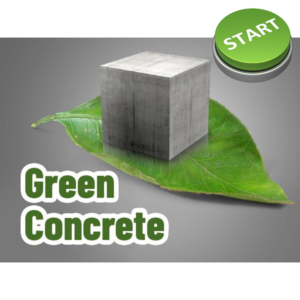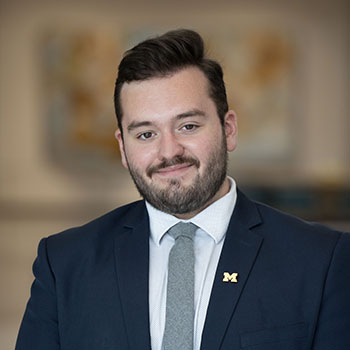
CEE Faculty Receive START Funding to Support Innovative Research Ideas
Department offers support to facilitate new projects.

Department offers support to facilitate new projects.
Seeding To Accelerate Research Themes (START) is a program in Michigan Engineering that provides a mechanism for faculty members to obtain funds for new and innovative research that is not yet ready for external proposal submission, and is provided to faculty to incentivize increased research expenditures.
In general, START grants promote collaboration among faculty members throughout the CoE to accomplish common goals within a specific research area or theme. There may be one or more project teams working together within a theme, each contributing a unique perspective to gather information, identify a need or solve a problem.
CEE faculty are offered additional support beyond the items that the CoE provides. Funding of up to $100K is sourced from the Chair’s Discretionary Fund for projects that align with the department’s Strategic Directions, which focus on automation, adaptation, data-driven innovation, shaping resource flows and enhancing the human habitat experience.
There are two options for CEE support:
Here are the 2023 START-funded projects that CEE faculty are leading:
Recalcitrant Biosolid PFAS Degradation via a Novel Electrofermentation Process: Per-and polyfluoroalkyl substances (PFASs) are a class of highly toxic emerging contaminants that accumulate in the biosolids of water resource recovery facilities (WRRF), posing human health risks and limiting their potential for reuse in land application. This project, led by Assistant Professors Joshua Jack and Aleksandra Szczuka, aims to develop a new integrated electrochemical-biological (IEB) electro-fermentation (EF) process, that simultaneously degrades recalcitrant PFAS in municipal WRRF biosolids while also accelerating the production of valuable biogas from residual waste organics. Read more….

Decentralized Autonomous Organization and Nature 2.0 for Self-Sustaining Funding for Civil Infrastructure: With recent advancement in AI and blockchain technologies, marrying decentralized autonomous organization (DAO) and Nature 2.0 has emerged as a new way for self-sustaining civil infrastructure. This research, led by Professor and John L. Tishman Construction Management Faculty Scholar and Associate Department Chair of Research SangHyun Lee and Professor Peter Adriaens, will explore more about the potential of DAO and Nature 2.0 toward the self-sustaining lifecycle of civil infrastructure that needs significant investment and efforts to serve our societal needs (e.g., rehabilitated existing infrastructure and new one for smart cities). Read more…
Reduction of Predictive Uncertainty for Soil Water Aquifers of Tropical Amazon Rainforest using Sensor Placement via Goal-oriented Bayesian Experimental Design: This project, led by CEE Professor Valeriy Ivanov and Mechanical Engineering Assistant Professor Xun Huan, will leverage long-term historical data and ongoing fieldwork in the only experimental watershed in wet tropics in central Brazil to develop a goal-oriented Bayesian experimental design to study the variability of subsurface water and its relationship with various landscape controllers. This research will interrogate observations, theory and numerical modeling and manipulate sensor placement to ensure optimality of spatial and temporal monitoring to reduce uncertainty in soil moisture/groundwater estimation with predictive models. Read more….
Real-time Hurricane Damage Estimation to Coastal Communities through Distributed Computing: Natural hazards, such as hurricanes, cause billions of dollars of losses each year due to damage and failure of infrastructure. This project, led by Associate Professor Seymour Spence, Antoine E. Naaman Collegiate Professor Sherif El-Tawil, and Associate Professor Jeremy Bricker, will study how the adaptive design of infrastructure and accurate real-time communication of risk levels are key to increasing the resilience of communities to natural hazards. Central to these ideas is the capability to predict the response of complex and interdependent infrastructure systems through computational modeling over varying time horizons. Recent advances in distributed simulation provide a language to link disparate disciplines and enable unprecedented collaborations between researchers working at multiple scales. Read more….
The uSed Test: Combining Image Analysis with Pore Water Pressures during Sedimentation towards Characterization of the Morphological Properties of Soils: The proposed research, led by Professors Roman Hryciw and Radoslaw Michalowski, and Associate Professor Jeremy Bricker, will explore the use of water pressures during sedimentation of such small-sized particles to obtain the percentages by weight and size of these finer grains. The results will seamlessly combine image-base methods for the sand-size particles with sedimentation pressures by the “fines” to produce a single particle size distribution. Read more…

Low-Carbon Concrete: This is a joint materials and structures research proposal, led by Professor Will Hansen and Arthur F. Thurnau Professor and Associate Department Chair of Undergraduate Programs Jason McCormick, which seeks to determine if a 50-55% reduction in CO2 at the source of cementitious systems has sufficient strength and durability for applications in wet-freeze environments such as Michigan. The structures component focuses on bridge-deck applications, while the materials component focuses on pavement applicants. Read more…
Recovery of High-value Chemicals and Fuels from Waste Streams using Biotechnology for the Circular Economy: This research, led by Lut Raskin, the Altarum/ERIM Russell O’Neal Professor and Vernon L. Snoeyink Distinguished University Professor, CEE and Mechanical Engineering (ME) Professor Steve Skerlos, ME Associate Professor Shanna Daly, and ME Assistant Professor Sita Syal, aims to create an international research center to advance use-inspired research and education on the recovery of chemicals and fuels from waste streams using biotechnology. Their center aims to identify and address scientific, technological, social, economic and policy bottlenecks to produce renewable natural gas and higher-value chemicals and fuels from a diverse range of waste streams (e.g., food and other municipal solid waste streams, forestry residues, agricultural waste, wastewater biosolids, industrial off-gases). Read more…

Micro-Origami for Manipulating Living Matter: This project, led by CEE Assistant Professor Evgueni Filipov, ME Professor Kenn Oldham, ME Associate Professor Allen Liu, and Biomedical Engineering Assistant Professor Carlos Aguilar, will tailor the design and fabrication of micro-origami to ensure their reliable function in physiological environments. The research will then explore the connection of these devices to three types of living matter: muscle fibers, multicellular spheroids, and extracellular matrices (ECMs). The proposed micro-origami systems offer a new platform for in vitro testing that could give insight to both the mechanics of living matter and their behavior under mechanical stimulation. Read more…

Marketing Communications Specialist
Department of Civil and Environmental Engineering